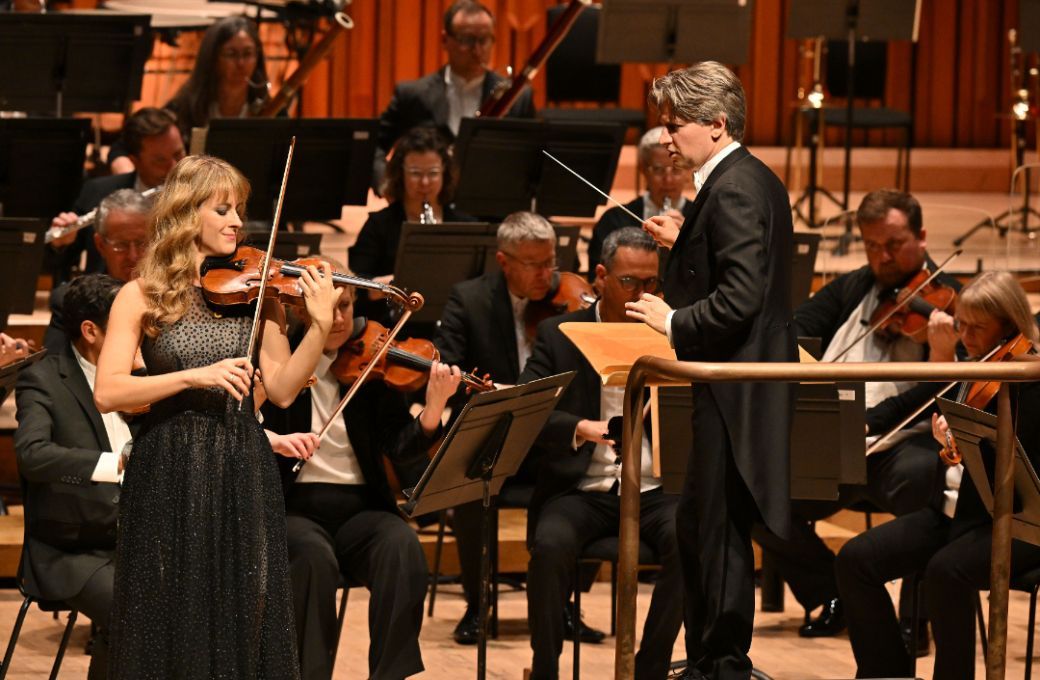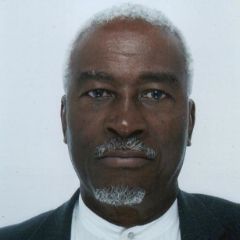To a man old enough to remember the 1960s, the very idea of a concert consisting of an overture, a concerto and a symphony is an irresistible attraction. When it materialises as an evening of sheer joy it gives the lie to the conceit that if you remember the ’60s you were never actually there. I was most certainly at the Barbican to see and hear the London Symphony Orchestra under Daniele Rustioni luxuriate in the heat and light of Liszt’s Les Préludes, and to cover themselves in glory with a vivid portrayal of Schubert’s Symphony no. 9 in C major. It can also be reported, for posterity, that Francesca Dego’s performance of Mendelssohn’s Violin Concerto will be one of the highlights of the season, even in this early stage of proceedings.
Les Préludes is by far the best-known of Liszt’s 13 tone poems and Rustioni has it in his repertoire – he conducted without a score. Although its title is said to refer to existential musings, the heat generated by Rustioni was of the sultry kind and deeply erotic; it was fuelled by the gorgeously rich sound of the horns, cushioned by the velvet of the strings. The light was that of the moon unashamedly absorbing the fire of the sun for its own adornment; its acolytes in the woodwind section provided the highly-polished mirror by which that adornment was projected. Lest it be thought that Rustioni had the orchestra wallowing in his adoration of the piece, it was evident that he has a clear-headed view of the work as a well-constructed exercise in mid-century symphonic writing, and shaped the performance with great style and vigour.
Early performances of Schubert’s “Great C major” must have given horn players sleepless nights worrying about “cracking” their first note. Here Kenneth Henderson seemed to relish being given the honour of opening one of the wonders of Western music. The assurance with which he kissed that note paved the way for the rest of the band to embrace the tenderness of Schubert’s early bars. For the rest of the work that assurance, confidence, and a touching fearlessness, was at the heart of a performance full of glowing adjectives too many to mention – but let vivacious, plangent and resplendent serve as examples. Rustioni had the route for an adventurous journey firmly fixed in his mind, and along the way gave ample opportunity for each section of the orchestra to have its say – much like a group of pilgrims on their way to a shrine of great reverence. If there was a momentary slacking of pace in the Scherzo it was only to allow for arrival at the shrine to be celebrated with a full-throated hymn of praise sung in glorious sunshine.

Speaking of sleepless nights, I wonder if that malady afflicts violinists who sign-up to a performance of what is arguably Mendelssohn’s magnum opus? Fear of hitting the first notes after a mere one-and-a-half bars of nothing must be a trigger for insomnia – but I suspect that that condition is unknown to Dego whose entry was like Scheherazade saying “Ah yes! Where was I?”. She is a storyteller of exceptional gifts and her playing showered the audience with the delights of perfectly-judged phrasing, gloriously warm tones and a cantabile to die-for. Her collaboration with Rustioni was a joy to watch, as were her little tête-à-têtes with the orchestra. Robert Browning’s contention that Art alone has the power to command gave praise to a Renaissance painter, but might easily be applied to Francesca Dego.


